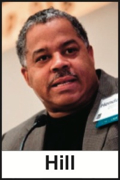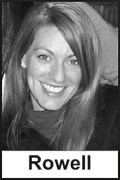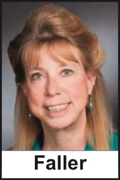Rascals case in brief
In the beginning, in 1989, more than 90 children at the Little Rascals Day Care Center in Edenton, North Carolina, accused a total of 20 adults with 429 instances of sexual abuse over a three-year period. It may have all begun with one parent’s complaint about punishment given her child.
Among the alleged perpetrators: the sheriff and mayor. But prosecutors would charge only Robin Byrum, Darlene Harris, Elizabeth “Betsy” Kelly, Robert “Bob” Kelly, Willard Scott Privott, Shelley Stone and Dawn Wilson – the Edenton 7.
Along with sodomy and beatings, allegations included a baby killed with a handgun, a child being hung upside down from a tree and being set on fire and countless other fantastic incidents involving spaceships, hot air balloons, pirate ships and trained sharks.
By the time prosecutors dropped the last charges in 1997, Little Rascals had become North Carolina’s longest and most costly criminal trial. Prosecutors kept defendants jailed in hopes at least one would turn against their supposed co-conspirators. Remarkably, none did. Another shameful record: Five defendants had to wait longer to face their accusers in court than anyone else in North Carolina history.
Between 1991 and 1997, Ofra Bikel produced three extraordinary episodes on the Little Rascals case for the PBS series “Frontline.” Although “Innocence Lost” did not deter prosecutors, it exposed their tactics and fostered nationwide skepticism and dismay.
With each passing year, the absurdity of the Little Rascals charges has become more obvious. But no admission of error has ever come from prosecutors, police, interviewers or parents. This site is devoted to the issues raised by this case.
On Facebook
Click for earlier Facebook posts archived on this site
Click to go to
Today’s random selection from the Little Rascals Day Care archives….
Click for earlier Facebook posts archived on this site
Click to go to
Today’s random selection from the Little Rascals Day Care archives….
Therapist, prosecutor worked 4-year-old as tag team
Feb. 6, 2012
Michele L. Zimmerman, now associate professor emeritus of psychiatric nursing at Old Dominion University, was one of four therapists who collaborated with prosecutors in interviewing Bob Kelly’s supposed victims.
Their teamwork is obvious in this clumsily coercive set-up by Zimmerman and District Attorney H.P. Williams Jr. (cited by Dr. Moisy Shopper, a St. Louis psychiatrist who reviewed interview tapes for the defense):
Zimmerman to 4-year-old boy: “Mr. Williams needs to know what he (Kelly) did to you to keep him in jail.”
Williams: “I’m in charge of the police. I decide who goes to jail.”
Last week I asked Zimmerman two questions: Do you still believe the Little Rascals defendants were guilty? Were the children actually abused?
Her response:
“Patient confidentiality laws do not permit me to comment on this case, as the therapist-client privilege still exists. It is not my role to comment on the defendants’ guilt or innocence, as that is the charge for the finder of fact.”
In fact, Zimmerman did comment publicly at least once in the aftermath of Kelly’s conviction: “There are people in Edenton who are still mad at one another because Person A did not tell Person B about the abuse.”
A final question, Ms. Zimmerman: What if Person A simply had nothing to tell?
When ‘overwhelming community sentiment’ wins
 June 10, 2013
June 10, 2013
“The danger posed by courts and prosecutors who abdicate their responsibilities to uphold the Constitution in favor of overwhelming community sentiment was recently illustrated in State v. Robert Fulton Kelly Jr.
“The trial prosecutor and the Superior Court judge were so overwhelmed by community sentiment that the trial was converted from a proceeding to adjudicate Mr. Kelly’s guilt or innocence into a forum to assist the families of the scores of alleged child victims recover from the gut-wrenching allegations of the 100-count indictment. The result: Justice was poorly served.
“The individuals thought to be victims and their many family members, loved ones and neighbors were frustrated, angered and in the end felt cheated. The individuals accused of heinous abuse of scores of children were deprived of a fair trial and deprived of liberty for more than three years.”
– From a talk by Henderson Hill, director of the N.C. Resource Center, Office of the Appellate Defender, at the Senator Sam J. Ervin Jr. Constitutional Issues Program, (May 18, 1995)
One less platform for ritual-abuse fantasizers
 April 27, 2012
April 27, 2012
Friday news roundup:
■ Darkness to Light, the Charleston-based nonprofit with the goal “End Child Abuse,” has responded to my request to disassociate itself from one of the last promoters of the ritual-abuse day-care hoax. This is from Erika Rowell, program coordinator for D2L: “After taking a long look at the Survivorship website we have decided to remove it from our resource list.”
■ The North Carolina Supreme Court’s latest release on petitions allowed and denied included no ruling on Junior Chandler’s appeal. Next possible release date: June 14.
■ The New York Times reports a jarring increase in the number of retractions published in scientific journals. The Times focuses on heavyweights such as Science and the New England Journal of Medicine, but I have to wonder whether – OK, hope that – this phenomenon might one day extend to the likes of the Journal of Child Sexual Abuse, the Journal of Psychohistory and Treating Abuse Today, all of which failed to apply professional skepticism to the abuse fantasies of their contributors.
‘Though others’ perceptions have changed….’
 May 14, 2012
May 14, 2012
Mary De Young’s engrossing bibliography “The Ritual Abuse Controversy” lists page after page of books and journal articles that accept wholeheartedly the existence of an epidemic of ritual abuse in day cares during the ’80s and early ’90s.
Roland Summit, Ann Burgess, Susan Kelley, David Finkelhor, etc., all used their professional credentials to support and spread the panic. But who among them has since acknowledged that it was all baloney? And that it left behind hundreds of profoundly damaged child-witnesses, families and defendants?
When I asked Dr. Finkelhor about the now-discredited foundation of “Nursery Crimes,” he replied that “This was a while ago, and I have not revisited the case. Our research did not conduct any independent review of the evidence, but simply coded the conclusion of the investigator we interviewed. I was neither an authority about the validity of claims at the time or at the present.”
Am I wrong to expect a higher level of professional accountability?
Mostly, by the turn of the latest century the alarmists had simply withdrawn from the arena. Like Dr. Finkelhor, they had moved on to other topics and “not revisited the case.”
One exception is Kathleen Coulborn Faller, professor of children and families in the School of Social Work at the University of Michigan.
In “Understanding and Assessing Child Sexual Maltreatment” (second edition, 2003), Dr. Faller writes, “Though others’ perceptions of the problems of sexual abuse in day care have changed, mine essentially have not.” Minimizing the work of next-generation researchers such as Ceci and Bruck, she cites approvingly such works as Kelley’s “Parental Stress Response to Sexual Abuse and Ritualistic Abuse in Day-Care Centers.”
Might Dr. Faller have changed her mind over the past decade?
Last week I asked her. So far she hasn’t replied.











0 CommentsComment on Facebook